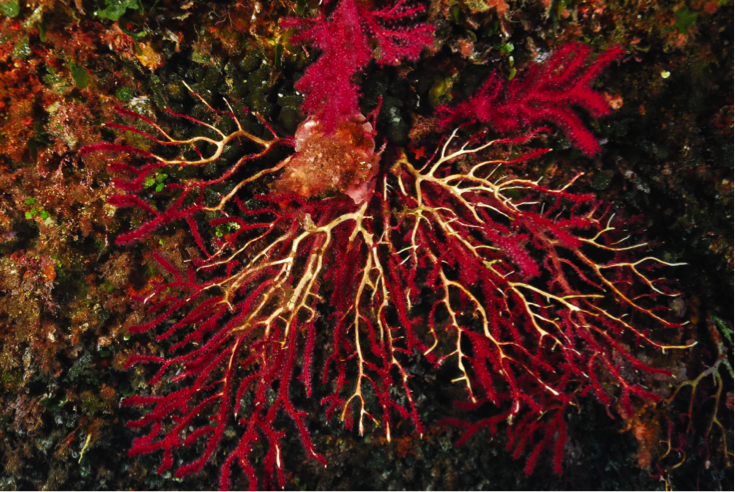The Mediterranean region is affected by numerous aspects of environmental change, including climate change, overexploitation and pollution of air and water. The Fifth Assessment Report of the Intergovernmental Panel on Climate Change (IPCC) has highlighted the region as one of the most vulnerable in the world. Having warmed more than the global average already, the region is at risk of significant water shortages, productivity loss in marine and land ecosystems, increased demand for irrigation and impacts of sea-level rise on coastal infrastructures. Countries in the South and East of the basin are at particular risk for severe economic losses and social impacts. The shared history and the close connections between countries and regions bordering the Mediterranean call for strong cooperation with respect to adaptation to, and mitigation of ongoing environmental change.
Unfortunately, comprehensive assessment of recent trends, likely future development and the consequences of environmental change for natural systems, the economy, and the human well-being, including questions of poverty and migrations, is still lacking. Existing assessments cover only parts of the region in disconnected chapters (e.g. the reports of the IPCC or the World Bank) or only some topics (e.g. climate variability). Moreover, observational data and findings are not easily accessible and therefore insufficiently used to inform climate and other environmental policy at regional, national and local levels.
In order to bridge this gap, the network of Mediterranean Experts on Climate and environmental Change (MedECC) has been launched at the Conference ‘Our Common Future under Climate Change’ in Paris, France (July 9, 2015). It is important to underline that MedECC is not a research project, as substantial scientific knowledge already exists (e.g. in leading research institutions around the Mediterranean, from large European projects such as CIRCE[1], or MedCLIVAR[2], French MISTRALS[3] research program and other research initiatives, such as Med-Cordex[4]). The aim is to provide the coherent and comprehensive synthesis and assessment of recent and expected changes for environmental policy and a dedicated science - policy interface.
This initiative meets a number of existing intentions by important stakeholders, such as the Mediterranean Strategy for Sustainable Development (MSSD 2016-2025)[5], the Regional Climate Change Adaptation Framework for the Mediterranean Marine and Coastal Areas[6] (UNEP/MAP), as well as the proposal included in the ‘Agenda of Positive Solutions’ [7]approved at the Mediterranean Climate Conference (MEDCOP 21) in June 2015.
MedECC has set itself the following specific goals:
- To gather the scientific community working on climate change and its impacts in the whole Mediterranean basin. This includes building a bridge between existing research structures and programs and facilitating data-sharing through existing or new platforms.
- To update and consolidate the best scientific knowledge about climate and environmental change in the Mediterranean basin and render it accessible to policy-makers, key stakeholders and citizens.
- To contribute to future IPCC, IPBES or related assessments in the Mediterranean basin.
- To bridge the gap between research and decision-making, contributing to the improvement of policies at national, regional, and local level by providing consolidated scientific assessments on particular issues and by responding to requests by decision-makers.
- To identify gaps in the current research on climate change and its impacts in the Mediterranean and interact with funding agencies for the development of new research programs to fill these gaps.
- To help building the capacity of scientists from Southern and Eastern Mediterranean Countries (SEMCs) at the international level and standards; encouraging training, research and development efforts in these countries.
More than 220 scientists from 21 countries, as well as several national research institutions support MedECC. The network was present during the Conferences of the Parties of the United Nations Framework Convention on Climate Change, UNFCCC (CO21 in 2015, Paris and COP22 in 2016, Marrakesh). The ongoing work of MedECC includes the preparation of the article “Environmental risks for sustainable development in the Mediterranean Basin” which will be submitted in January 2017 and the work on the first MedECC assessment report on the environmental change in the Mediterranean Basin, which should be published at the end of 2018. During the scoping workshop in October 2016 in Aix-en-Provence, France, a draft outline of this report has been prepared.
In order to prepare the outline of the first MedECC repport, the scoping workshop was held from 10 to 12 October 2016 in Aix-en-Provence (read more).
MedECC also organized a side-event during COP22 conference in November 2016 in Marrakesh (read more).
Several events are planned for the near future:
- Steering Committee meeting (13-14 March 2017, Barcelona, Spain), linked to 1st UfM WG Environment and Climate Change Meeting ;
- Presentation at European Parliament (June 2017) ;
- Three MedECC working group meetings (April-July 2017).
More information: http://www.medecc.org
MedECC is now coordinated by Joël Guiot (CNRS, CEREGE, OT-Med), Wolfgang Cramer (CNRS, IMBE, OT-Med) and Julien Le Tellier (Plan Bleu) with the support of Katarzyna Marini (OT-Med)

(® Frédéric Zuberer, Diving service, Sciences of the Universe Observatory (OSU) Pythéas Institute, Marseille, France)
[3] Mediterranean Integrated STudies at Regional And Local Scales: http://www.mistrals-home.org/spip/?lang=en


